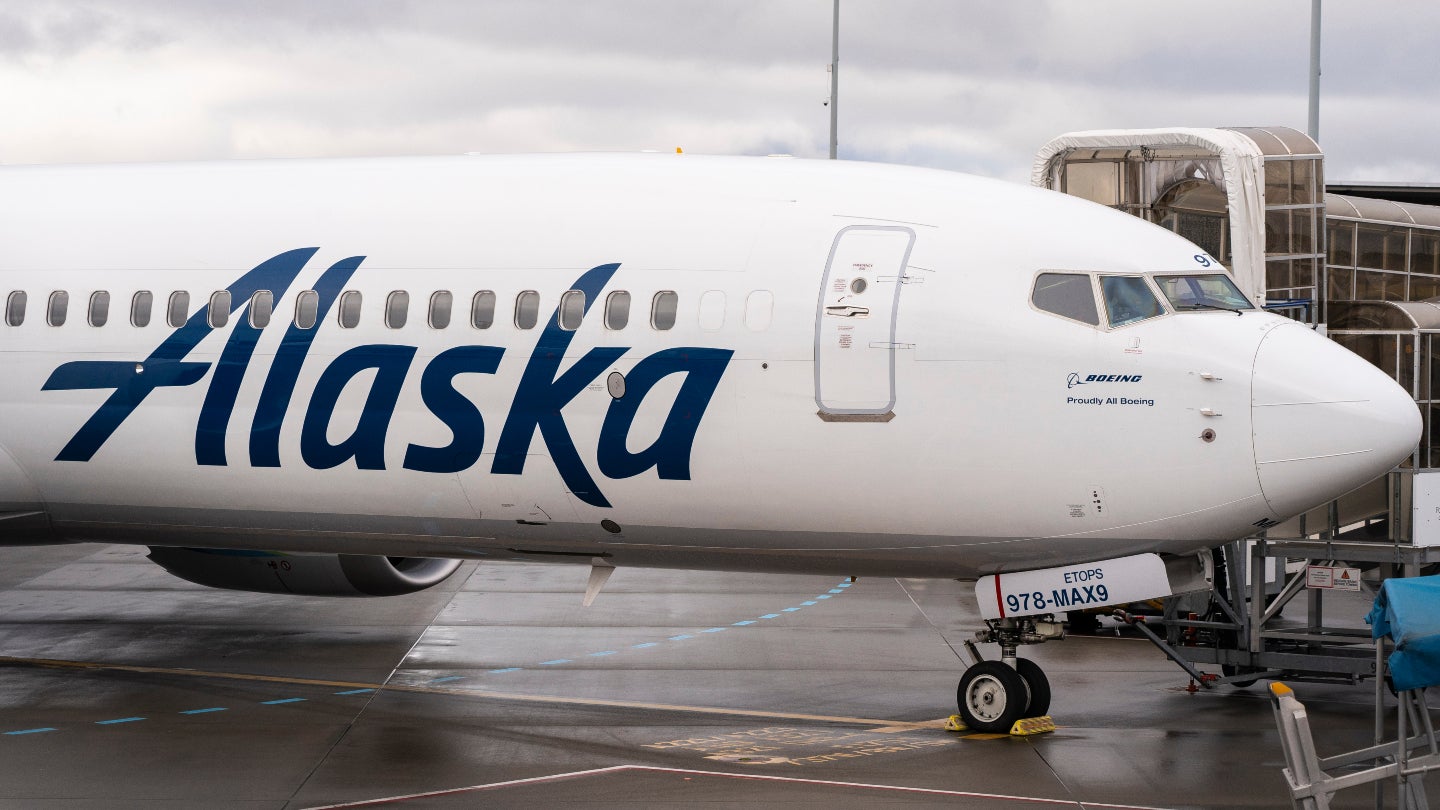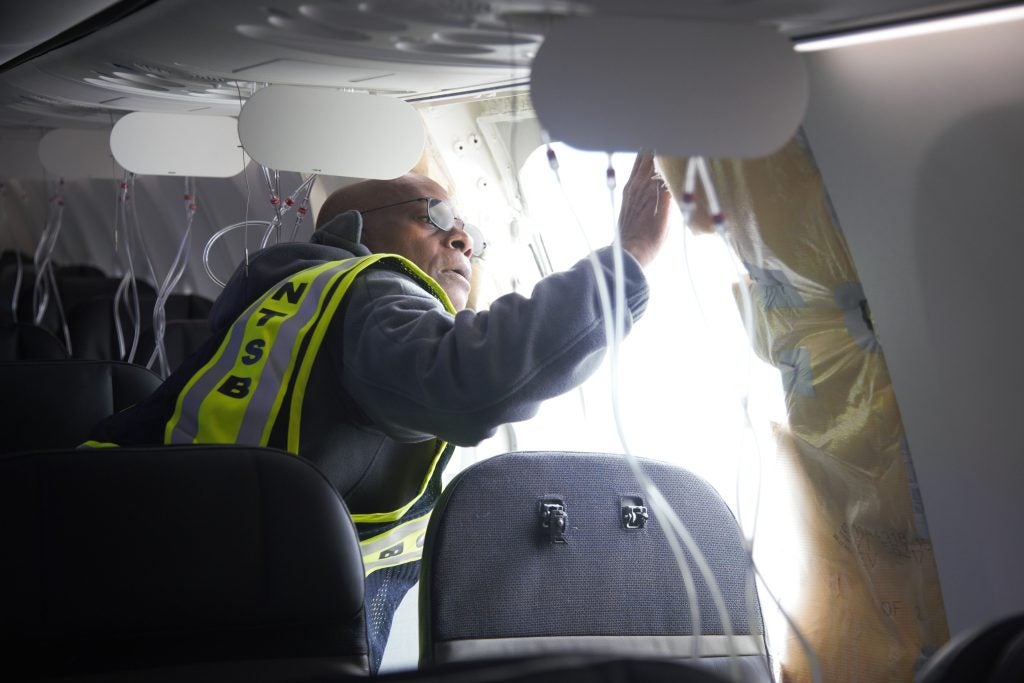
The US Federal Aviation Administration (FAA) has ordered the temporary grounding of certain Boeing 737 MAX 9 aircraft as it begins additional inspections following the incident regarding the loss of a door plug on an Alaska Airlines flight this weekend.
The FAA said around 171 aircraft would be affected worldwide by its Emergency Airworthiness Directive (EAD) which requires immediate inspections that are expected to take four to eight hours per plane.
But the incident may have longer-term effects on plane maker Boeing and its 737 MAX family of passenger jets. Its share price plummeted by approximately 8% on Monday morning trading in Europe.
The EAD comes after the Alaska Airlines flight suffered the dramatic loss of a door plug on the side of its fuselage soon after takeoff from Portland, Oregon, leading to an emergency landing of the plane, which was carrying 171 passengers.
Also part of the FAA’s work to assist the National Transportation Safety Board’s (NTSB) investigations into the cause of the incident, the EAD will apply to the 737 MAXs that have been configured in the same way as the affected aircraft, where a section of the plane has been fitted with a door plug instead of an additional emergency exit.
Meanwhile, the NTSB said it had managed to locate the door plug in the backyard of a Portland teacher, identified only as “Bob”, with Chair Jennifer Homendy describing the part as key to the organisation’s investigations.

US Tariffs are shifting - will you react or anticipate?
Don’t let policy changes catch you off guard. Stay proactive with real-time data and expert analysis.
By GlobalDataHomendy also commented on the fact that the specific aircraft that suffered the door plug loss had previously been restricted by Alaska Airlines to only flying over land due to an issue with an auto-pressurization light that had lit up three times prior to the incident in question and said the NTSB would look into any possible correlation, though she described the three events as “benign”.

Impact on Boeing and its future
While nobody is believed to have been injured by the incident, though some material belongings and parts of the aircraft’s interior were ripped out during the depressurization, it marks another blot on the record of Boeing’s best selling aircraft family and has already lead to shares in the company falling more than 8% upon the opening of markets on Monday 8 January.
Andrew Charlton, managing director of Aviation Advocacy, said: “The drop in the share price today will most certainly also focus the minds of senior management that the engineers matter. We have already seen the CEO cancel a senior management start of year meeting, to be replaced with an all staff safety briefing and action plan etc.
“That is a win for the engineers too. The big question is how deep will these changes go inside the culture of the company. We can only hope they go very deep indeed. The industry needs two strong airframers.”
Boeing’s response, which included a statement declaring “safety is our top priority”, will likely receive extra scrutiny given the incident affects the same aircraft family that was grounded for 20 months after two fatal crashes in 2018 and 2019, something that led the FAA to recently change its aircraft certification policies.
Additionally, the company has been attempting to gain exemptions from some certification requirements for its new MAX 7 aircraft in regards to an issue with the engine anti-icing system, asking the FAA if it could move ahead with certifying the MAX 7 using the same systems used on the already in-service 737 MAX aircraft while it develops changes needed to fix the issue.
Charlton said that while the recent incident will add further pressure to Boeing to ensure safety at all times in its industrial processes as a priority over pushing its aircraft per month metrics, it is unlikely to change the FAA’s approach to certification.
However, he explained: “It will certainly sharpen and heighten the way that the FAA looks at how Boeing approaches these issues (I think they were already on that path) and what the FAA will expect from Boeing day-to-day.”
Additionally, though Boeing is believed to have an important role in the process, the actual fuselage panel/door plug involved in the incident is actually manufactured and installed by Spirit AeroSystems, meaning investigators will be looking into the supplier’s role in the incident as well as Boeing’s potential responsibility.



